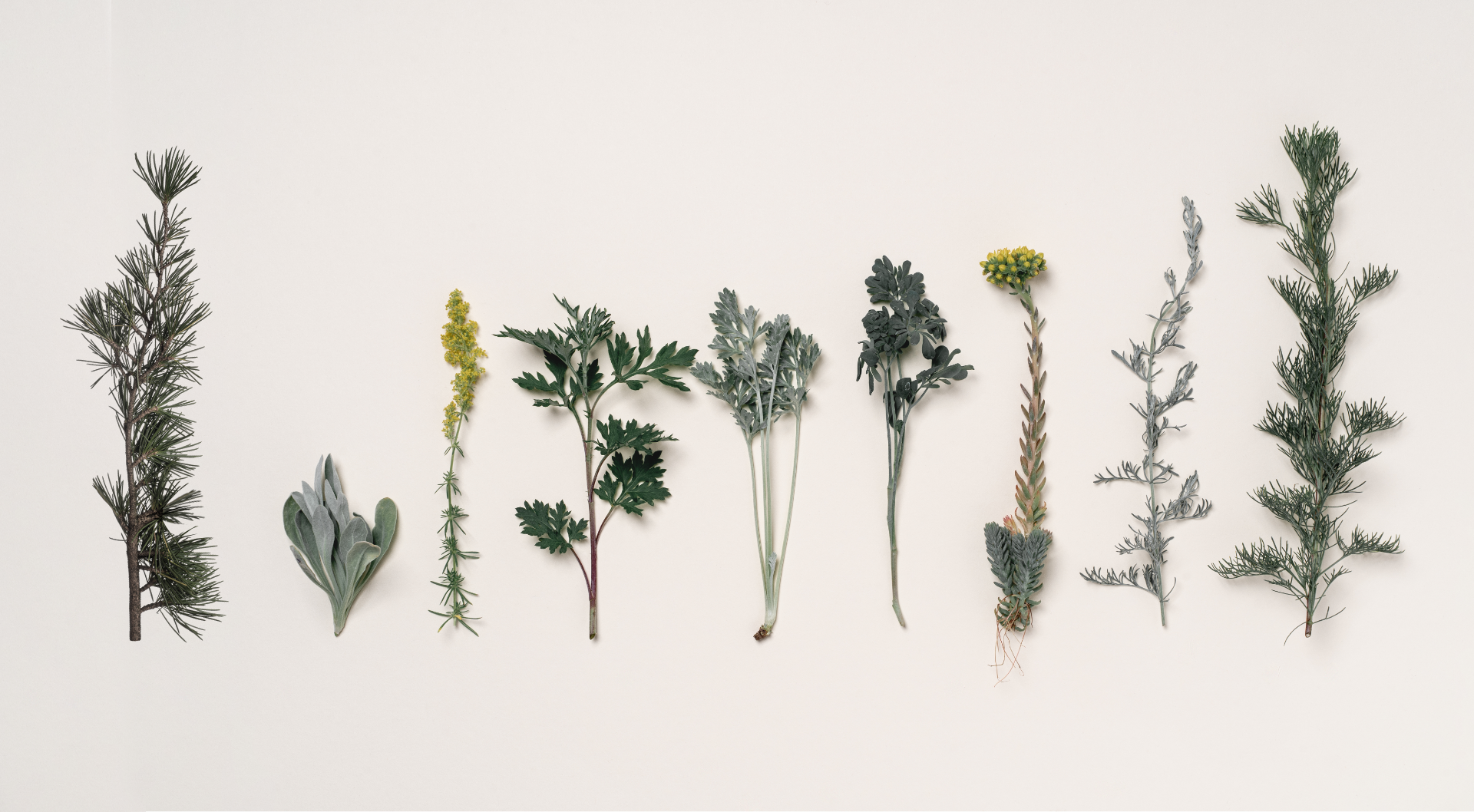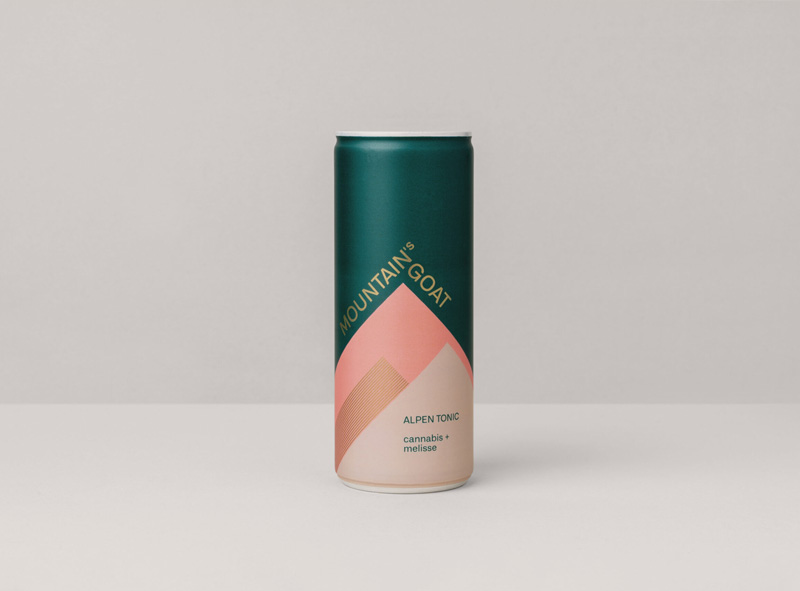


Alpine Tonic
Refreshing drink with natural terpenes with cannabis profile*.
Valuable aromas of various bitter herbs from wormwood, angelica and lemon balm meet terpenes with a cannabis profile.
The ingredients in detail:
-

Terpenes with Cannabis Profile
Terpenes are the main component of the essential oils produced in plants and are responsible for the aroma & taste, among other things. The characteristic smell and taste of cannabis is thus due to the terpenes, which are present in the plant with almost 300 components. For the production of MOUNTAIN'S GOAT, natural terpenes are combined with cannabis profiles of the genus Holy Grail and Lemon Kush together with valuable alpine herbs.
The result is an extraordinary bitter-fresh drink, which is very different in taste from the hemp flavours known on the market. Cannabis is said to have a relaxing, anti-inflammatory and anti-anxiety effect on the human organism. The terpenes in MOUNTAIN'S GOAT give it a unique flavour profile.
-

Wormwood - the tart & healing companion:
Wormwood (Artemisia absinthum) is a herbaceous plant that belongs to the daisy family. The plant is characterised by a tart, spicy scent and a very bitter aroma and, along with gentian, is one of the herbs with the strongest bittering power in Europe. However, it is precisely these bitter substances that give wormwood its health-promoting effect.
Wormwood is also found colloquially. The expression "wormwood" is due to the distinctive taste of the plant. It is used when something nice has a bitter aftertaste.
-

Edelraute - the queen of the Alps:
The rue, which grows exclusively in high, alpine areas, belongs to the mugwort species. It is a perennial plant with short, downy white hairy leaves that delight many with their pleasant fragrance. The rue is usually found on boulders, scree slopes or in rock crevices high above the tree line.
Here they can spend their life on the edge together with the cheeky goats. Thanks to its essential oils and bitter substances, the rue has helped mountain farmers in particular to recover from fever and even pneumonia in earlier times.
-

Stavewort - refreshing, spicy & aromatically enchanting:
Staffwort (Artemisia abrotanum) is one of the somewhat lesser-known spice and medicinal herbs, but should not be underestimated. Due to its distinctly bitter, spicy taste and tangy aromatic scent, the herb is perfectly suited for refreshing drinks & for seasoning hearty dishes. Due to its aromatic superpower, it is also nicknamed cola herb.
-

Mugwort - aka the mother of all medicinal herbs:
The inconspicuous mugwort (Artemisia vulgaris) was already revered in ancient times as one of the most powerful medicinal plants. Traditional folk medicine knows mugwort as a detoxifying, antispasmodic and circulation-enhancing women's herb. Why women's herb? Mugwort has a long history of helping women give birth, relieving menopausal symptoms and generally getting everything flowing.
But the herb does not only help the female part. Mugwort has a relaxing effect on nervous sleep disorders and also on fear of flying. In addition to foot baths or tea, a herbal pillow filled with mugwort leaves and flowers can also help.

Alpine Spirit
Swiss stone pine liqueur with earthy, sweet and ethereal notes of Swiss stone pine from the Austrian Alps, the Zillertal.
Suitable for pure enjoyment (e.g. as a digestif) or best on the rocks as a signature drink AUFGUSS mit dem Mountain's Goat Alpen Tonic.
The ingredients in detail:
-

Swiss stone pine - the majestic giant of the Alpine region:
The Swiss stone pine (Pinus cembra), also known as Swiss stone pine, belongs to the pine family and is enthroned as the queen of the Alps in the high altitudes of the mountain world. It can reach a height of up to 25 metres and is characterised by its characteristic long needles and striking cones. The wood of the Swiss stone pine exudes a pleasant resinous and soothing scent that is often described as calming and beneficial to health.
The Swiss stone pine has played an important role in the culture and tradition of the Alpine region for centuries. Its wood was not only used to build houses and furniture, but also found its way into folk medicine. Swiss stone pine liqueur, a distillate made from the cones of this majestic tree, is a prized drop appreciated both for its beneficial properties and its unique aroma.
Colloquially, the expression "to lie down in the stone pines" is well known in the Alpine region, meaning "to lie down or rest", and is directly attributable to the soothing and calming character of the stone pine.